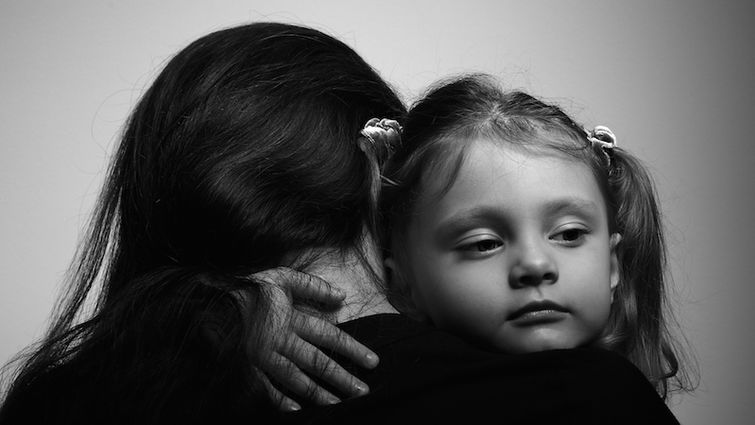
Parents can do several things to help children experiencing acute stress disorder.
Children who experience a traumatic event can display signs of severe stress to varying degrees. Parents play an important role in helping their children process and recover from the shock of witnessing something unusually traumatic — anything from learning about or seeing war footage on television to being present at the time of an assault or murder.
Loma Linda University Health pediatric psychologist Jennifer Weniger, PhD, associate clinical professor at the School of Behavioral Health, says some children can experience what’s known as acute stress disorder when symptoms persist for up to a month. When symptoms last longer than a month, it becomes post-traumatic stress disorder.
Symptoms can include nightmares, flashbacks, disassociation, lack of positive emotions, and not displaying any joy. A child may also have an exaggerated fear response, trouble functioning at school or with relationships, or make efforts to avoid the location where the traumatic event occurred.
Here are five things Weniger recommends parents can do to help a child who has experienced a traumatic event:
Listen. Have your child tell the story of what happened. Listen to them with your full attention, attentive body language, and without judgment. Don’t interrupt them. Listen again to the story several times over a few days if the child feels like recounting the experience multiple times.
Explore your child’s understanding of the trauma. Make sure you’re aware of how your child understands the traumatic event and its significance. Find out how the event may have reshaped their perception of others and society. Try to ascertain if your child understands the significance of an injury or death. A younger child may not understand the permanency of death as well as some older children might.
Focus on self-care. Encourage your child to get back into their normal routine as much as possible. Make sure they are eating well, with healthy food and at regular intervals. Have your child stay active with exercise or being outside. Let them play with friends or family members they enjoy being around. If needed, have them do deep-breathing exercises, relaxation and meditation.
Guard against isolation. Take notice if your child seems more withdrawn compared to how they typically behaved before the traumatic event. Encourage socialization and keep them connected.
Seek professional counseling. If symptoms persist, seek professional counseling at the right time. Earlier is better, Weniger says. “Don’t just think this will go away in a couple weeks. If you see reoccurring symptoms, get help immediately.” She recommends trauma-focused cognitive behavioral therapy (TF-CBT) for children who have experienced traumatic events. Many licensed psychotherapists can offer this type of therapy. Seeking professional therapy early can help keep Acute Stress Disorder under control before it turns into post-traumatic stress disorder, which is when symptoms persist for longer than a month.
It can be difficult for a parent to see a child exhibit symptoms of stress following a traumatic event. Parents play a critical role in identifying their child’s symptoms of stress and getting them to the professional counseling they may need. It’s also important for parents and other care givers to take care of themselves so they can continue being a person who can effectively communicate that their child is safe and loved.
